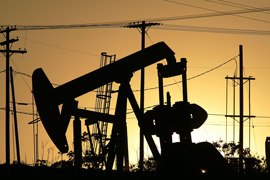IMF issues oil and food warning
World financial body says nations need to change economic policies to avert crisis.

The IMF chief called for more co-operation between nations to tackle higher oil and food prices.
The world financial body’s stated aim is protect global financial stability but critics have accused it of acting to protect the interests of more powerful nations such as the US.
Peter O’Driscoll, the executive director of Action Aid USA, a development aid organisation, told Al Jazeera that the IMF was to blame for much of the current food crisis.
O’Driscoll said the IMF had encouraged developing countries to grow crops for the export market, putting their food security at risk, and that the body had pushed governments to end subsidies of domestic agricultural industries.
Rocketing inflation
The IMF report said poorer countries were having to pay out billions of dollars more for imported oil and food.
 |
| High oil prices are also causing problems for developing nations [GALLO/GETTY] |
Its findings were released as world oil prices continued to surge above $142 dollars a barrel.
The fund said countries should strive to protect the poor by expanding social programmes, but that they should avoid steps that could result in economic instability.
In the past the IMF has advocated cuts in public spending by governments and has promoted expanding the free-market as a solution to economic problems.
The report said global food inflation almost doubled in 2007.
While food inflation in major industrial nations was relatively low – around three per cent – it reached 10 per cent in developing countries and would have been higher without food subsidies, the IMF said.
Preliminary data showed food inflation in 120 developing nations had risen to 12 per cent in March this year, the report said.